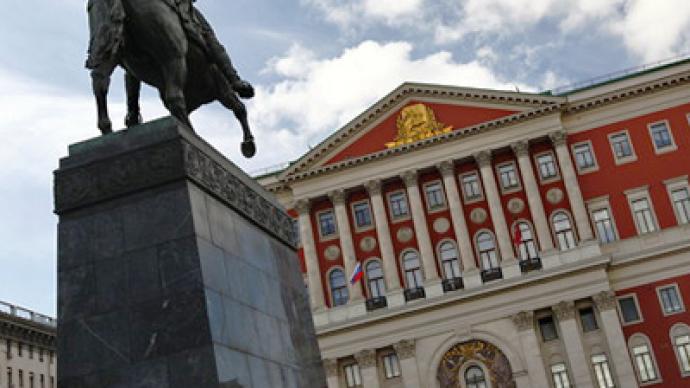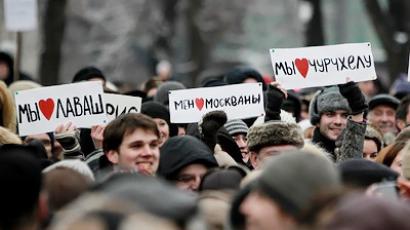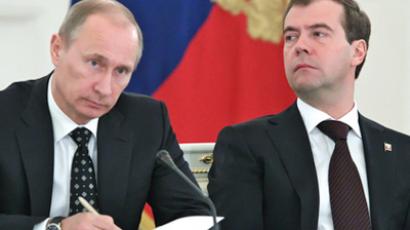Moscow authorities deny plans to construct mosque after popular protest

After months of protests by Muscovites to fight the construction of a mosque by the Council of Muftis, the mayor’s office denied that such plans ever existed.
Several protest rallies were held in Moscow’s Tekstilshchiki district after the local prefecture in July 2010 had posted on its website a decision to give a plot of land for the construction of a mosque. Local resident of the populous Southeast Moscow area, which is short on public greenspace, had long ago demanded that the whole territory of the northern part of Volzhsky Boulevard be allotted for the creation of a recreation zone and a park. Some of them even planted trees, as a protest against the alleged plans. In December 2010, Southeast Moscow’s administrative district boss, Viktor Zotov declared that the controversial decision had been repealed. Nevertheless, those concerned living in the district wrote a letter to the new Moscow Mayor Sergey Sobyanin, saying that no documents banning the construction had been published. They also asked him to take the problem under his personal control. On Wednesday, the mayor’s office published an answer which denied any plans to construct a mosque in the public greenspace. No legal acts have been adopted to allot this plot of land in Tekstilshchiki, Deputy Mayor Aleksandr Gorbenko said in a letter to local residents. The district’s municipal deputies and the local authorities will determine how this territory will be used in the future.People behind the project themselves are to be blamed for its failure, believes Mufti Albir Krganov. In January 2011, he was appointed the head of the Muslim Spiritual Board for Moscow and the Center of Russia by Central Spiritual Muslim Board. This situation has demonstrated “how one should not hold talks about the construction of a mosque,” he told Interfax.Better to first to learn the opinion of the local people, “speak kindly with them, and agree on the place and go through all the procedures,” he said. But none of this was done, although “there are no objective obstacles” for the construction of a new mosque in Moscow, he noted.The Central Spiritual Muslim Board has built mosques in many Russian cities with a predominantly Orthodox population, and there have never been any conflicts, Krganov said. “Conflicts could be avoided”In September 2010, Archpriest Vsevolod Chaplin of the Russian Orthodox Church said the construction of a mosque could not be started without taking the opinion of local residents into account. He also cited the practice of building Orthodox churches in regions where most people are Muslims, Buddhists or of other faiths. Conflict situations could be easily avoided, if the house of worship’s place, size and architecture are agreed on with the local population, he said. Answering the public from Tekstilshchiki, he noted that mosques were built in Russian cities before the 1917 revolution. There were no conflicts because the goals of the construction were explained to people. Tsar Nicolas II even donated his personal funds for a mosque in Tver, Chaplin said. “Then traditional Muslims were reliable allies of Orthodox Christians, and one of the pillars of the Russian state, and they remain such today.” At the same time, in modern Russia some mosques “are sometimes seized by individuals influenced by foreign extremist centers,” Chaplin noted, citing leaders of traditional Muslims. Orthodox people should have guarantees that such cases are ruled out, he stressed. Moscow is now lagging behind other Russian cities by the number of Orthodox churches per person, Chaplin said. He noted the conflict in Tekstilshchiki was partly escaladed because of the controversial position of municipal authorities. They first rejected a request to allocate the plot to an Orthodox church, but “then gave it over to the construction of a mosque at the same place.” The Patriarch of Moscow and All Russia Kirill last year supported the construction of houses of worship for people of other faiths. He also stressed the need “to take into account the cultural tradition shared by most Russians.”














